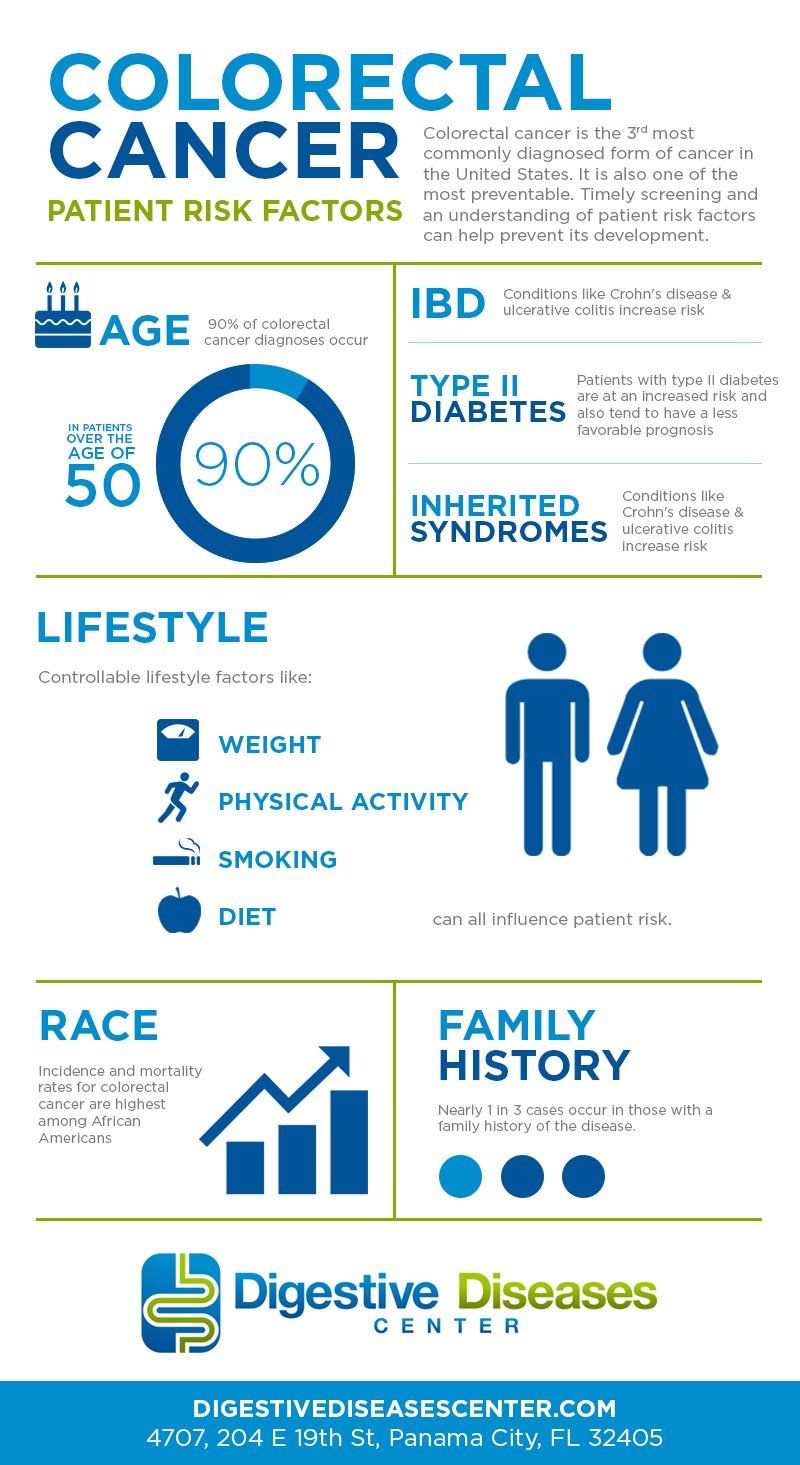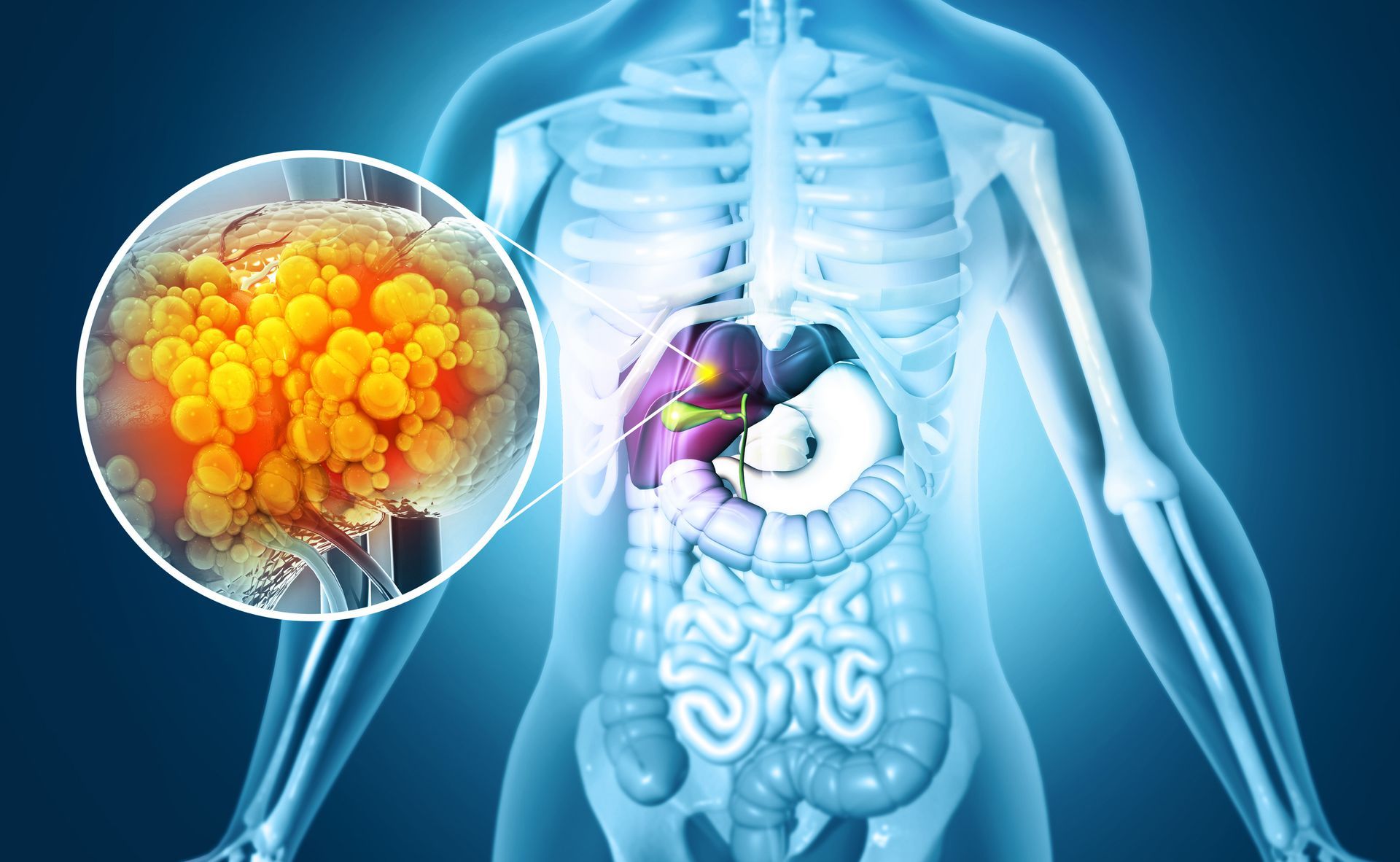Patient Risk Factors for Colorectal Cancer [INFOGRAPHIC]
We understand that cancer can be a scary word. Each year, over 1.5 million Americans are diagnosed with some form of the disease, and it accounts for over 500,000 deaths each year. The prospect of cancer can be so frightening, in fact, that many may find it easier to avoid the topic all together. However, pretending that cancer isn’t a real possibility is a mindset that can only bring harm. In fact, in order to be truly prepared against cancer, it must be confronted head-on. Vigilance in living a healthy lifestyle, undergoing recommended screenings, and being aware of personal risk factors are the best tools available to keep oneself protected.
Colorectal cancer , in particular, is a form of which patients should be especially mindful. Not only is it the third most commonly diagnosed type of cancer, it is also highly preventable and has a high rate of survival when detected early. So, take the first step now, and review the associated risk factors in the graphic below. If any of these pertain to you, schedule an appointment with your physician today, and learn what you should be doing now to safeguard your health well into the future.
CONTACT
850-763-5409
ADDRESSES
4 LOCATIONS
204 E 19th Street, B, Panama City
12216 Panama City Beach Pkwy, D, Panama City Beach
4295 3rd Ave, Marianna
101 Good Morning St., 109B, Port St. Joe
Subscribe to our newsletter:
subscribe to our newsletter
We will get back to you as soon as possible.
Please try again later.




